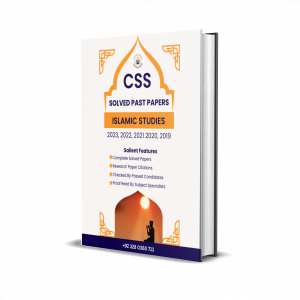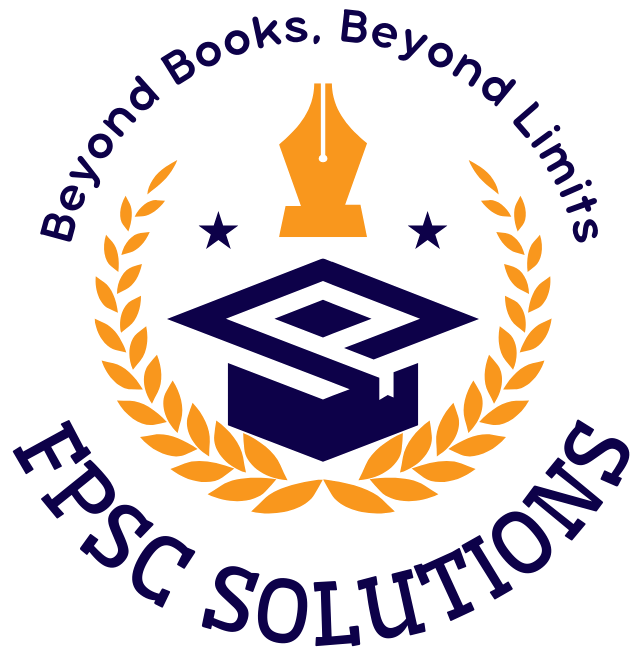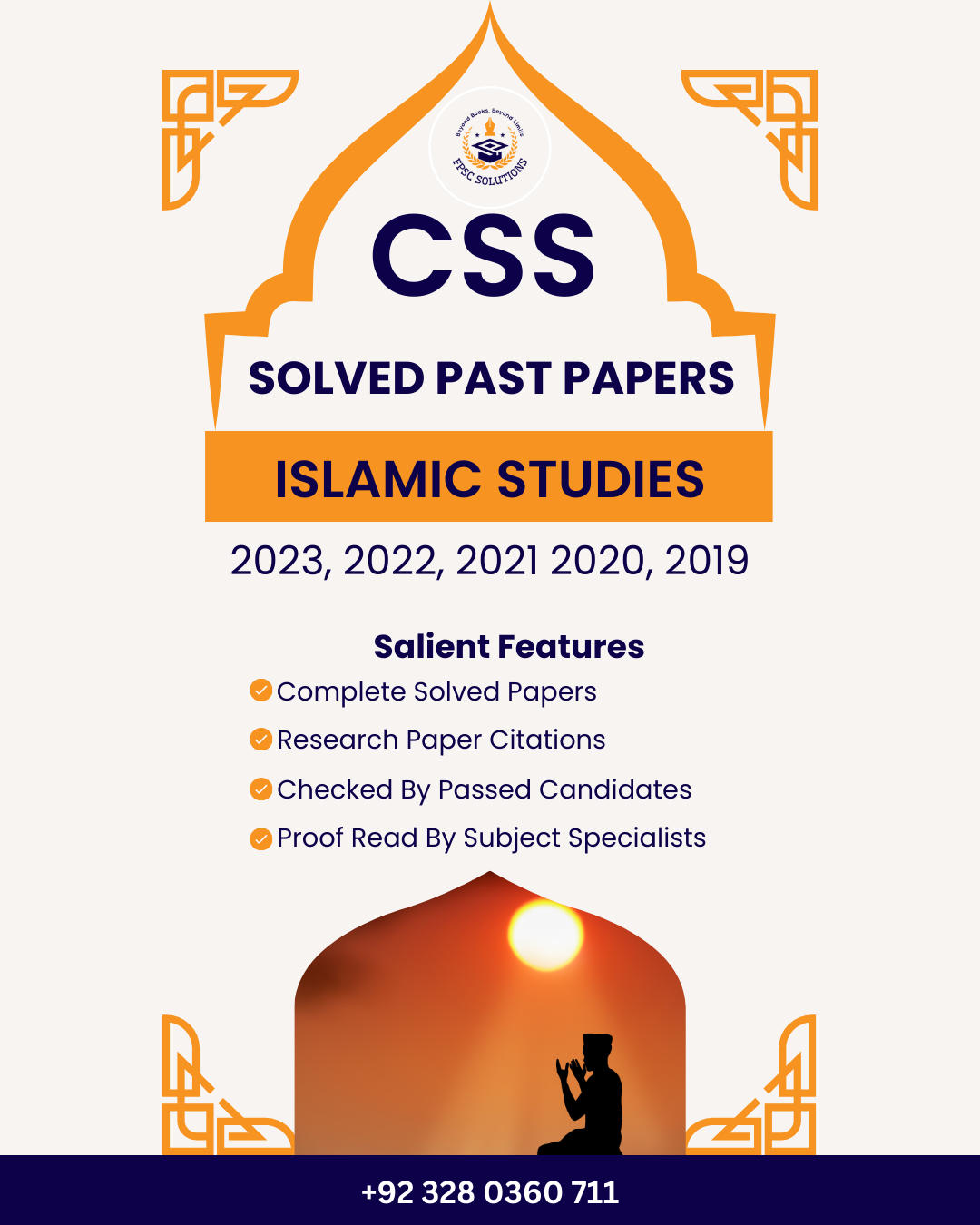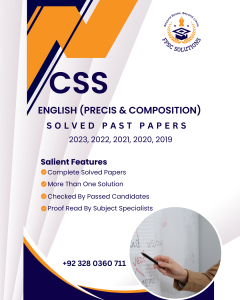The CSS Examination in Pakistan is a competitive test that evaluates candidates’ writing abilities, comprehension skills, and capacity to express their thoughts clearly.Using past paper solutions in CSS exam preparation is important as they provide insights into the exam format and question patterns, helping candidates focus their studies on high-priority topics.
Preparing for the CSS Islamic studies can be challenging, but you can succeed with the right approach and preparation material. So for CSS compulsory Islamic Studies 2023 past papers and solved complete answer solution with Quranic references ,this material is very important for the exam.This article provides a comprehensive analysis of the CSS Islamic Studies 2023 paper, offering insights into the questions and how to approach them effectively.
You must also see CSS Complete Islamic Studies Preparation Material for better understanding and preparation of this compulsory subject of the competitive examination.

CSS Islamic Studies Past Paper 2023
Q2. What is the Quranic argument on life hereafter? What are its impacts on the individual and collective life of a human being?
Q3. Discuss the Holy Prophet’s (PBUH) role as a Model for Military Strategy.
Q4. Elaborate on the rights of daughters granted by Islam and how these are denied by Muslims in the contemporary world.
Q5. Defind Ijma (consensus) and explain its different kinds. Can legislation by a parliament of an Islamic state be regarded as a valid consensus?
Q6. Analyze the Charter of Madina as a social contract.
Q7. What are the motives of extremism in Pakistan? How can society get rid of extremism by following the teachings of Islam?
Q8. Write Notes on the following:
- Human rights in the light of the Sermon of Farewell Pilgrimage.
- Social Justice in an Islamic Society.
CSS Islamic Studies 2023 Solved Solutions with Quranic References
-

CSS ISLAMIC STUDIES SOLVED PAST PAPERS 2023, 2022, 2021, 2020, 2019
₨ 999 – ₨ 2,999Select options This product has multiple variants. The options may be chosen on the product page
How to Tackle CSS Islamic Studies Questions
Question 2: What is the Quranic argument on life hereafter? What are its impacts on the individual and collective life of a human being?
To answer this question, start by explaining the Quranic perspective on life after death. Highlight key verses that discuss the hereafter. Then, discuss how belief in life after death influences personal behavior and social ethics. Mention how it encourages accountability and moral responsibility in both personal and communal contexts.
Question 3: Discuss the Holy Prophet’s (PBUH) role as a Model for Military Strategy.
Begin with a brief introduction of the Holy Prophet (PBUH) and his leadership qualities. Detail specific instances from Islamic history where his military strategies were employed. Analyze how these strategies were effective and what modern lessons can be drawn from them. Conclude with the importance of ethical conduct in military leadership.
Question 4: Elaborate on the rights of daughters granted by Islam and how these are denied by Muslims in the contemporary world.
Start by outlining the rights Islam grants to daughters, using examples from the Quran and Hadith. Compare these rights with the current situation in various Muslim societies, highlighting discrepancies. Discuss reasons behind this gap and suggest ways to bridge it, focusing on education and awareness.
Question 5: Define Ijma (consensus) and explain its different kinds. Can legislation by a parliament of an Islamic state be regarded as a valid consensus?
Define Ijma and its significance in Islamic jurisprudence. Explain the different types of Ijma, such as Ijma of the scholars and Ijma of the community. Discuss whether parliamentary legislation can be considered a valid form of Ijma, supporting your argument with examples and scholarly opinions.
Question 6: Analyze the Charter of Madina as a social contract.
Introduce the Charter of Madina and its historical context. Examine its key components and principles, such as justice, equality, and mutual cooperation. Discuss how it served as a social contract, fostering unity and peace among diverse groups in Madina. Highlight its relevance in contemporary times.
Question 7: What are the motives of extremism in Pakistan? How can society get rid of extremism by following the teachings of Islam?
Identify the root causes of extremism in Pakistan, such as political instability, economic disparity, and lack of education. Discuss how Islamic teachings promote peace, tolerance, and social justice. Suggest practical steps to combat extremism, emphasizing the role of education, media, and community leaders.
Question 8: Write Notes on the following:
Human rights in the light of the Sermon of Farewell Pilgrimage: Summarize the key points of the sermon related to human rights. Explain their significance and how they can be applied today.
Social Justice in an Islamic Society: Define social justice from an Islamic perspective. Discuss the principles that ensure fairness and equity in society, using examples from Islamic teachings.
Mastering the CSS Islamic Studies paper requires not just knowledge but also the ability to articulate answers effectively. Our solved past papers for CSS Islamic Studies 2023 provide a roadmap for your preparation. By understanding the structure of questions and the expected answers, you can improve your chances of success. Use these solved papers as a tool to enhance your study strategy and approach the exam with confidence.


